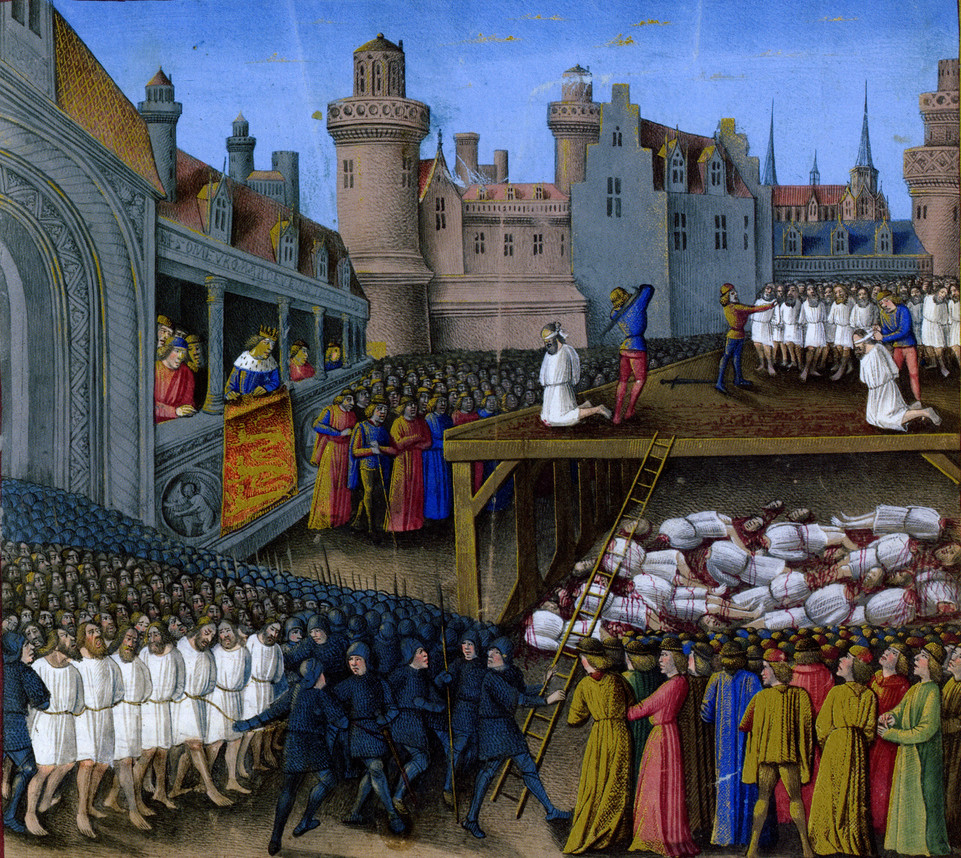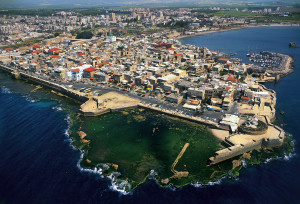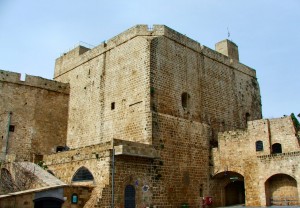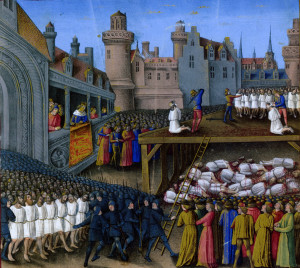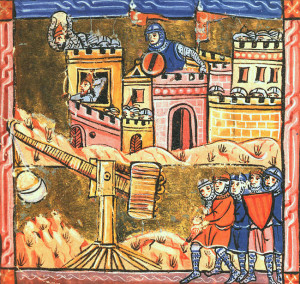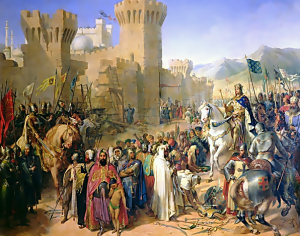You are defending against a siege. For two whole years you have held your city against thousands of enemies. Cut off from resupply, you are starving. Your family is in the city with you. If the city falls then your wife and children will be killed or sold into slavery.
But there is hope. Your attackers are themselves besieged. Your ruler has led a vast army to pin the attackers in place so there is a double siege in effect. Both sides are so evenly matched that it has ground into a stalemate.
Your enemies receive reinforcements. Thousands more men pour in by the sea week after week. They take up the attacks with renewed vigour, bombarding the city from afar and causing the walls to crumble. You have held those walls against assaults, starvation and disease for two years and now the city is certain to fall.
A deal is struck. With relief you discover that your ruler has negotiated a surrender. To spare your life and the lives of all your comrades and their families he has promised a vast sum. If he does not pay up then you will all be sold into slavery. The three thousand of you inside the city are all taken prisoner but are treated well. The day of the payment comes and goes but it is such a vast sum that it takes time to get together. You feel honoured that your ruler values your life.
Finally, you are led from the city by your enemies. You walk with your children through the enemy’s defences. At the top of a low hill you are lined up in ranks. You see your comrades arrayed before you. Thousands of your fellow soldiers and your ruler’s banner fluttering in the distance. You have been delivered.
And then your enemies force everyone to their knees. Your friends, comrades. You, your wife, spouse, your children.
And the massacre begins.
We remember Richard the Lionheart as one of England’s greatest kings. So few of the English kings were actors on the world stage, as he was. He was a man of great passion. The court he grew up in loved chivalry and romantic poetry. He was leading and winning battles when he was still a teenager. On crusade he won battle after battle, charging in where the fighting was thickest. And he has the most awesome name of all the English kings (followed by Edmund Ironside, right?).
He also committed the Massacre at Ayyadieh.
The Third Crusade was called when Saladin captured Jerusalem in 1187. Saladin was a remarkable military leader. He captured over fifty cities and towns and crushed the most important of the crusader kingdoms. The crusader states were close to getting snuffed out. But they held on and then besieged the city of Acre for two years while they were themselves surrounded. By 1191 Richard and his allies had landed their forces. They were enough to tip the balance and Acre fell.
The terms of the surrender were that Saladin would pay a ransom of two hundred thousand gold pieces. He would also release Christian prisoners and even return the pieces of the Holy Cross that Saladin had captured at the Battle of Hattin.
There was a delay. No doubt it was tough getting that much gold together within a month, even for the most powerful man in the region.
But it is possible that Saladin was delaying as a tactic to keep the victorious crusaders stalled at Acre. Once the exchange had taken place, Richard and the crusaders would be free to march south toward Jerusalem. Every day meant Saladin could gather more forces and more supplies to himself. And every day meant the crusaders army sat eating up its own supplies and falling to disease.
So Richard could have felt enraged and insulted. But why did Richard not sell the prisoners into slavery? He would have made some much needed money to fund the crusade.
Instead, Richard reacted with startling finality. Almost three thousand prisoners were marched to a small hill called Ayyadieh, a few miles from Acre. The hill was in full view of the vanguard or some elements of Saladin’s army and within view of Saladin’s own headquarters. It is not certain that the women and children were killed but there were women and children among the prisoners and there is no record of the non-combatants being released or sold.
Saladin’s historians said that Richard had always intended the slaughter. That he would have carried it out even had he received the money. But judging from his other acts, before and after, that seems unlikely. He could be brutal but was rarely so deceitful.
He seems to have been a passionate, sometimes impulsive man. For example, in his youth he took up in armed rebellion against his father. Later he broke off an agreed political betrothal then married for love. Perhaps it was the petty, knee-jerk reaction of a frustrated monarch who could not get his way.
Committing the massacre within full view of Saladin’s army was surely meant as a symbol. Of defiance, perhaps? Of revenge for Saladin’s many victories. It certainly enraged the nearest of Saladin’s forces. They attacked the hill in outrage at the slaughter that had just taken place. The crusaders fought back the attack and withdrew their forces back to Acre.
The crusade would continue. Great battles would be fought where Richard would demonstrate his organisational and martial prowess.
Do his motives really matter? Well, Richard’s legacy is that of a hero. He barely set foot in England during his reign. He beggared the country three ways from Sunday to pay for the crusade and then for his ransom. Perhaps he was not good at being a king. Yet in England he is still remembered as a valiant knight. His personal lion emblem became and is still a national symbol (three of them). We have a glorious statue of him outside the Houses of Parliament.
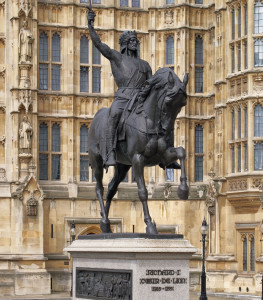
Richard the Lionheart . A Victorian imagining of the man. It stands outside the Palace of Westminster.
Beha-ed-Din was a historian and biographer of Saladin. He witnessed the massacre and is one of the few sources for what happened that day. He sums up his tale:
The motives of this massacre are differently told; according to some, the captives were slain by way of reprisal for the death of those Christians whom the Muslims had slain. Others again say that the king of England, on deciding to attempt the conquest of Ascalon, thought it unwise to leave so many prisoners in the town after his departure. God alone knows what the real reason was. “

